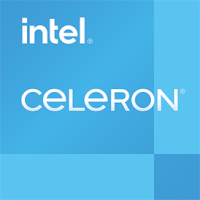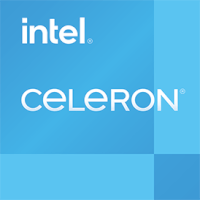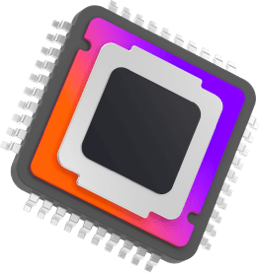| Intel Celeron G1630 | Intel Celeron J1900 | |
| 55 W | Max TDP | 10 W |
| NA | Consumo di energia al giorno (kWh) | NA |
| NA | Costo di esercizio al giorno | NA |
| NA | Consumo di energia all'anno (kWh) | NA |
| NA | Costo di esercizio all'anno | NA |
Intel Celeron G1630 vs Intel Celeron J1900

Intel Celeron G1630 funziona con 2 core e 2 thread della CPU. Funziona su No turbo base No turbo tutti i core mentre il TDP è impostato su 55 W .Il processore è collegato al socket della CPU LGA 1155 Questa versione include 2.00 MB di cache L3 su un chip, supporta i 2 per supportare la DDR3-1333 e presenta 2.0 PCIe Gen 16 . Tjunction mantiene al di sotto dei -- gradi C. In particolare, Ivy Bridge S Architecture è migliorata con la 22 nm e supporta VT-x, VT-x EPT, VT-d . Il prodotto è stato lanciato il Q1/2013

Intel Celeron J1900 funziona con 4 core e 2 thread della CPU. Funziona su 2.42 GHz base 2.42 GHz tutti i core mentre il TDP è impostato su 10 W .Il processore è collegato al socket della CPU BGA 1170 Questa versione include 2.00 MB di cache L3 su un chip, supporta i 2 per supportare la e presenta 2.0 PCIe Gen 4 . Tjunction mantiene al di sotto dei -- gradi C. In particolare, Bay Trail Architecture è migliorata con la 22 nm e supporta VT-x, VT-x EPT . Il prodotto è stato lanciato il Q4/2013
Intel Celeron G1630
Confronta dettaglio
| 2.80 GHz | Frequenza | 2.00 GHz |
| 2 | Core | 4 |
| No turbo | Turbo (1 nucleo) | 2.42 GHz |
| No turbo | Turbo (tutti i core) | 2.42 GHz |
| Hyperthreading | No | |
| Overclock | No |
|
| normal | Architettura principale | normal |
| Intel HD Graphics (Ivy Bridge GT1) | GPU | Intel HD Graphics (Bay Trail GT1) |
| 1.05 GHz | GPU (Turbo) | 0.85 GHz |
| 22 nm | Tecnologia | 22 nm |
| 1.05 GHz | GPU (Turbo) | 0.85 GHz |
| 11.0 | Versione DirectX | 11.2 |
| 3 | Max. viene visualizzato | 2 |
| DDR3-1333 | Memoria | |
| 2 | Canali di memoria | 2 |
| Memoria massima | ||
| ECC | No |
|
| -- | L2 Cache | -- |
| 2.00 MB | L3 Cache | 2.00 MB |
| 2.0 | Versione PCIe | 2.0 |
| 16 | PCIe lanes | 4 |
| 22 nm | Tecnologia | 22 nm |
| LGA 1155 | Presa | BGA 1170 |
| 55 W | TDP | 10 W |
| VT-x, VT-x EPT, VT-d | Virtualizzazione | VT-x, VT-x EPT |
| Q1/2013 | Data di rilascio | Q4/2013 |
Cinebench R20 (Single-Core)
Cinebench R20 è il successore di Cinebench R15 ed è basato anche su Cinema 4 Suite. Cinema 4 è un software utilizzato in tutto il mondo per creare moduli 3D. Il test single-core utilizza solo un core della CPU, la quantità di core o l'abilità di hyperthreading non conta.
Cinebench R20 (Multi-Core)
Cinebench R20 è il successore di Cinebench R15 ed è basato anche su Cinema 4 Suite. Cinema 4 è un software utilizzato in tutto il mondo per creare moduli 3D. Il test multi-core coinvolge tutti i core della CPU e offre un grande vantaggio dell'hyperthreading.
Cinebench R15 (Single-Core)
Cinebench R15 è il successore di Cinebench 11.5 ed è basato anche su Cinema 4 Suite. Cinema 4 è un software utilizzato in tutto il mondo per creare moduli 3D. Il test single-core utilizza solo un core della CPU, la quantità di core o l'abilità di hyperthreading non conta.
Cinebench R15 (Multi-Core)
Cinebench R15 è il successore di Cinebench 11.5 ed è basato anche su Cinema 4 Suite. Cinema 4 è un software utilizzato in tutto il mondo per creare moduli 3D. Il test multi-core coinvolge tutti i core della CPU e offre un grande vantaggio dell'hyperthreading.
Geekbench 5, 64bit (Single-Core)
Geekbench 5 è un benchmark multipiattaforma che utilizza pesantemente la memoria di sistema. Una memoria veloce spingerà molto il risultato. Il test single-core utilizza solo un core della CPU, la quantità di core o l'abilità di hyperthreading non conta.
Geekbench 5, 64bit (Multi-Core)
Geekbench 5 è un benchmark multipiattaforma che utilizza pesantemente la memoria di sistema. Una memoria veloce spingerà molto il risultato. Il test multi-core coinvolge tutti i core della CPU e offre un grande vantaggio dell'hyperthreading.
iGPU - FP32 Performance (Single-precision GFLOPS)
Le prestazioni di calcolo teoriche dell'unità grafica interna del processore con semplice precisione (32 bit) in GFLOPS. GFLOPS indica il numero di miliardi di operazioni in virgola mobile che l'iGPU può eseguire al secondo.
Geekbench 3, 64bit (Single-Core)
Geekbench 3 è un benchmark multipiattaforma che utilizza pesantemente la memoria di sistema. Una memoria veloce spingerà molto il risultato. Il test single-core utilizza solo un core della CPU, la quantità di core o l'abilità di hyperthreading non conta.
Geekbench 3, 64bit (Multi-Core)
Geekbench 3 è un benchmark multipiattaforma che utilizza pesantemente la memoria di sistema. Una memoria veloce spingerà molto il risultato. Il test multi-core coinvolge tutti i core della CPU e offre un grande vantaggio dell'hyperthreading.
Cinebench R11.5, 64bit (Single-Core)
Cinebench 11.5 è basato su Cinema 4D Suite, un software popolare per generare moduli e altre cose in 3D. Il test single-core utilizza solo un core della CPU, la quantità di core o l'abilità di hyperthreading non conta.
Cinebench R11.5, 64bit (Multi-Core)
Cinebench 11.5 è basato su Cinema 4D Suite, un software popolare per generare moduli e altre cose in 3D. Il test multi-core coinvolge tutti i core della CPU e offre un grande vantaggio dell'hyperthreading.
Cinebench R11.5, 64bit (iGPU, OpenGL)
Cinebench 11.5 è basato su Cinema 4D Suite, un software popolare per generare moduli e altre cose in 3D. Il test iGPU utilizza l'unità grafica interna della CPU per eseguire i comandi OpenGL.
Estimated results for PassMark CPU Mark
Alcune delle CPU elencate di seguito sono state confrontate con CPU-Comparison. Tuttavia, la maggior parte delle CPU non è stata testata ei risultati sono stati stimati dalla formula proprietaria segreta di un confronto tra CPU. In quanto tali, non riflettono accuratamente i valori effettivi del contrassegno CPU Passmark e non sono approvati da PassMark Software Pty Ltd.

Stima dell'utilizzo elettrico


